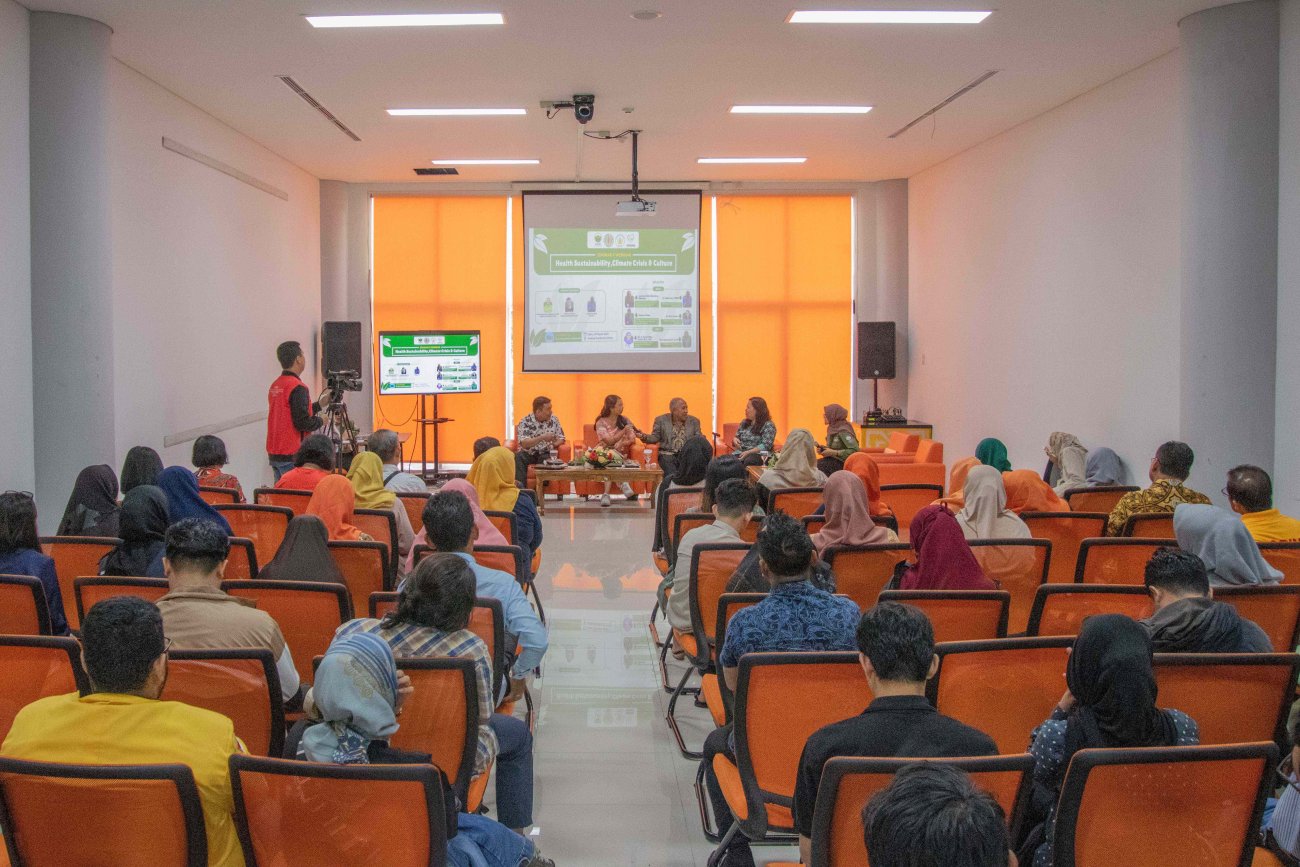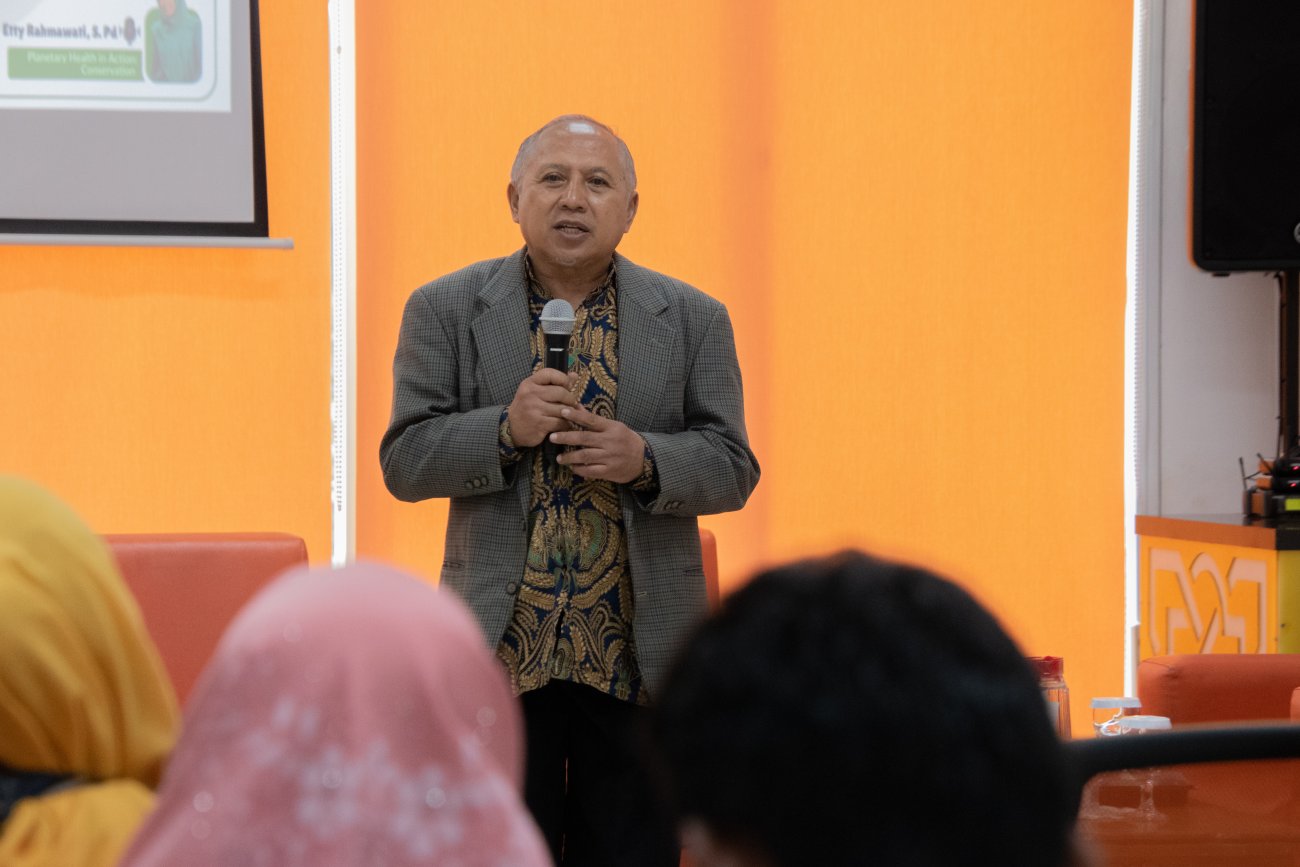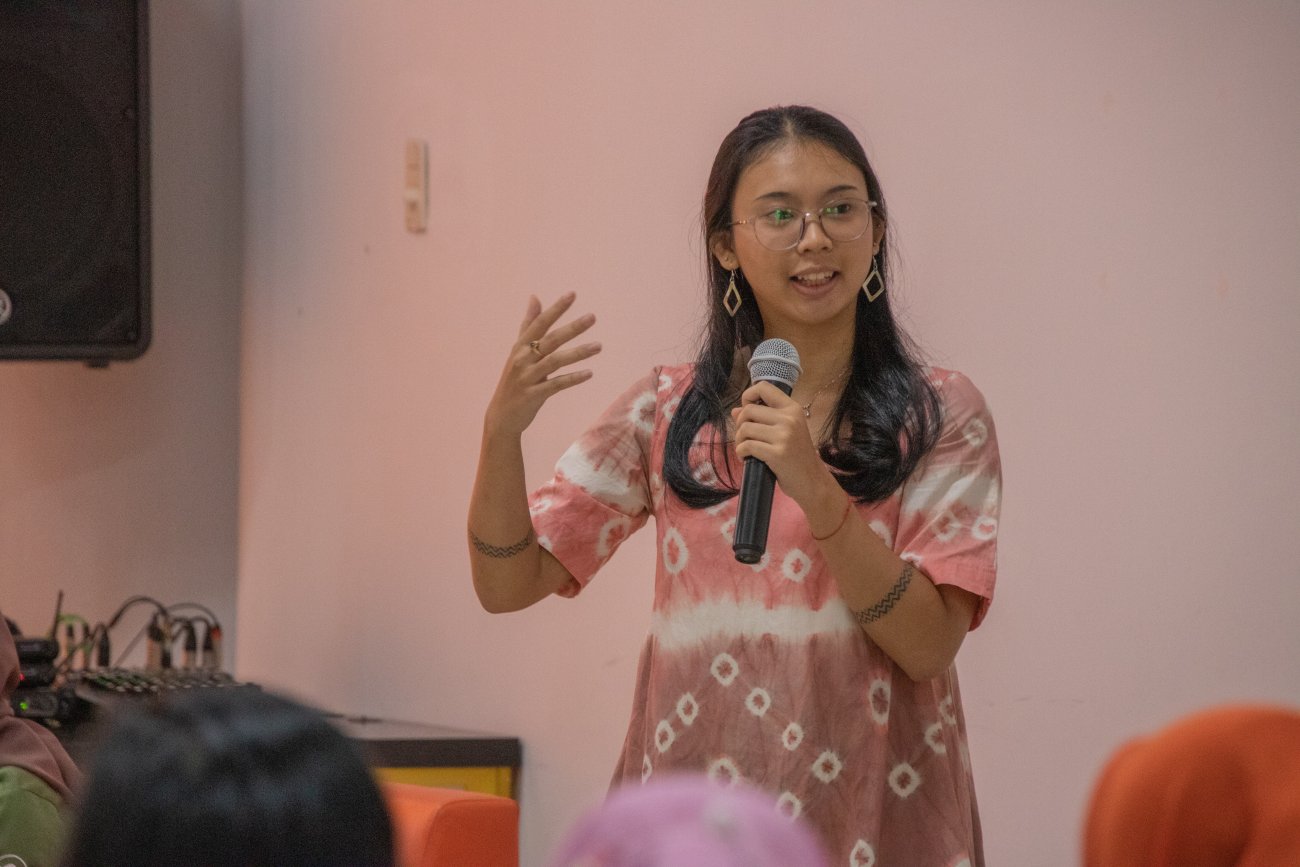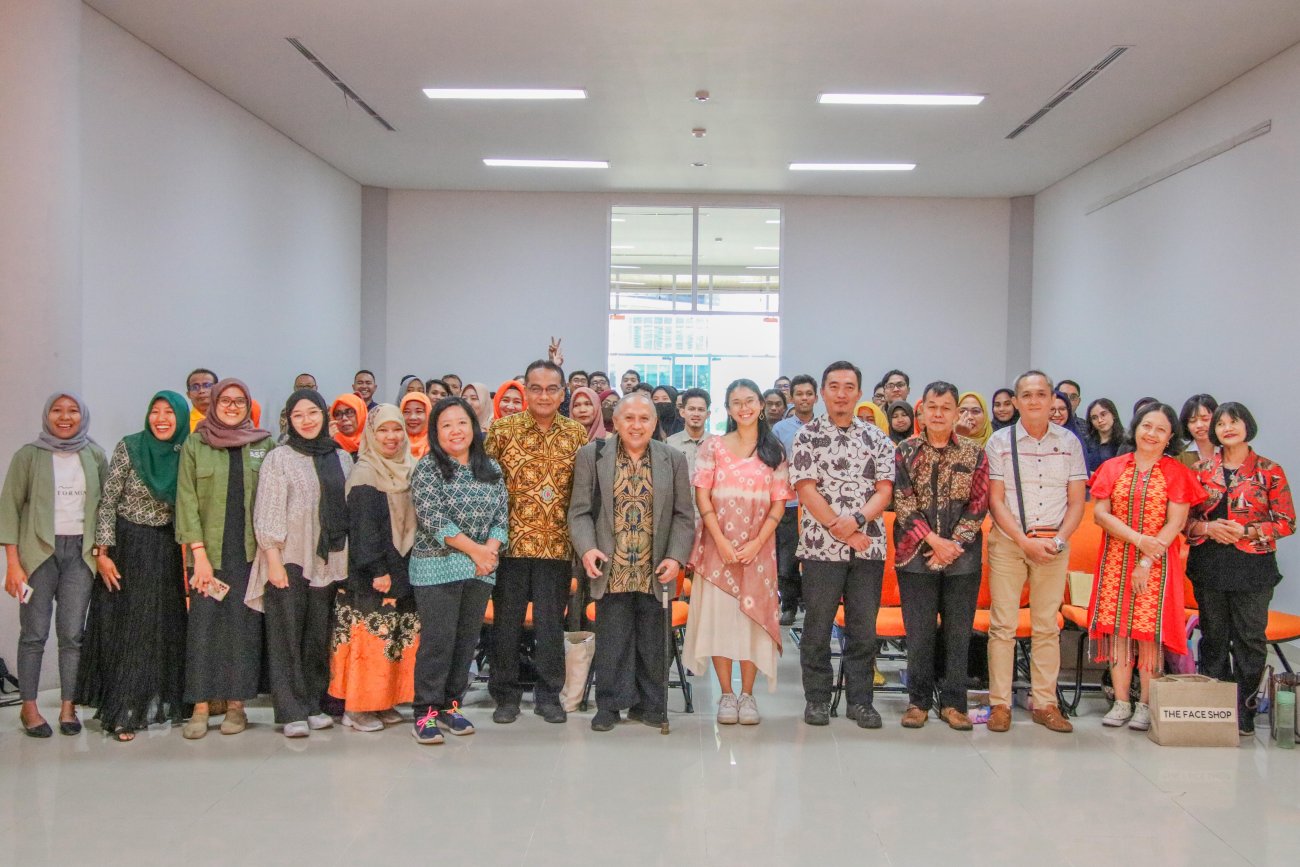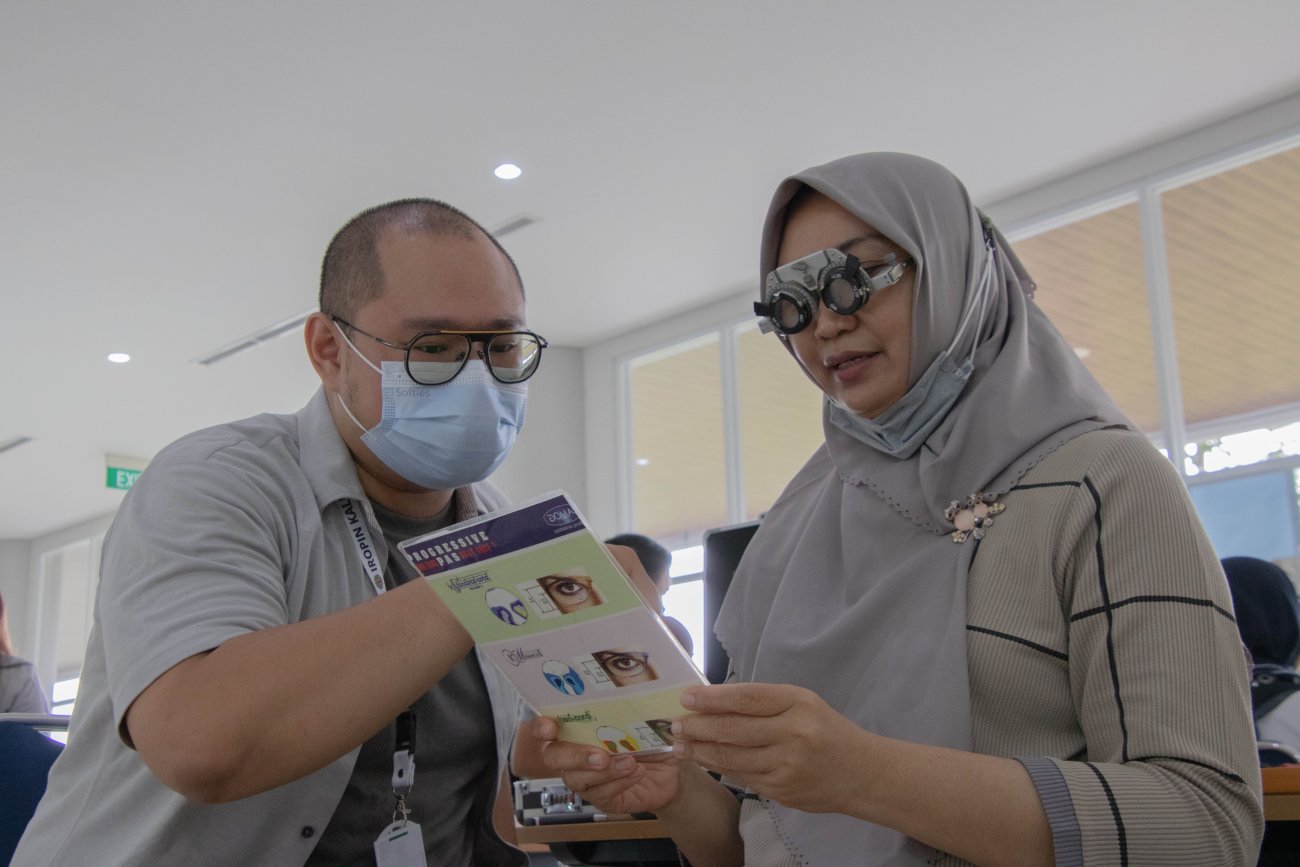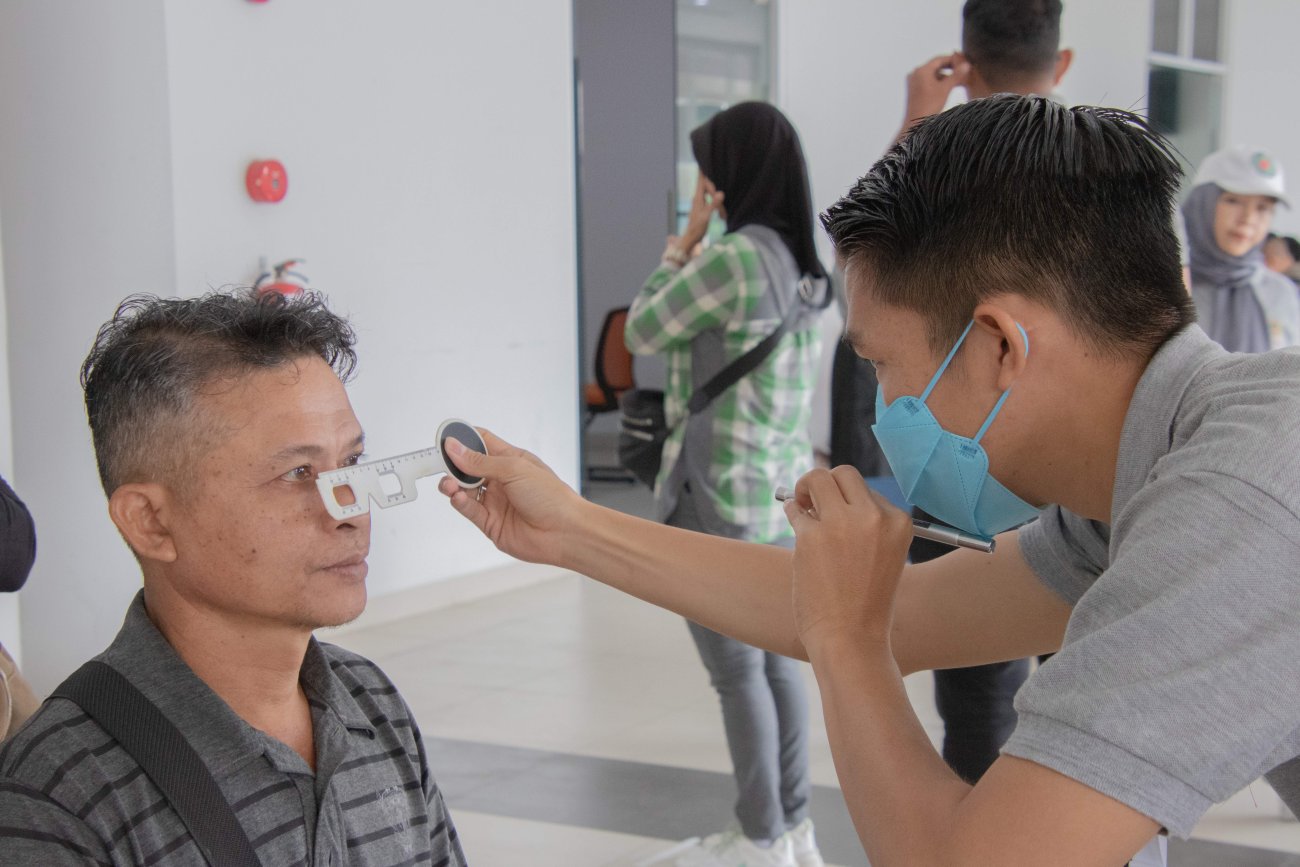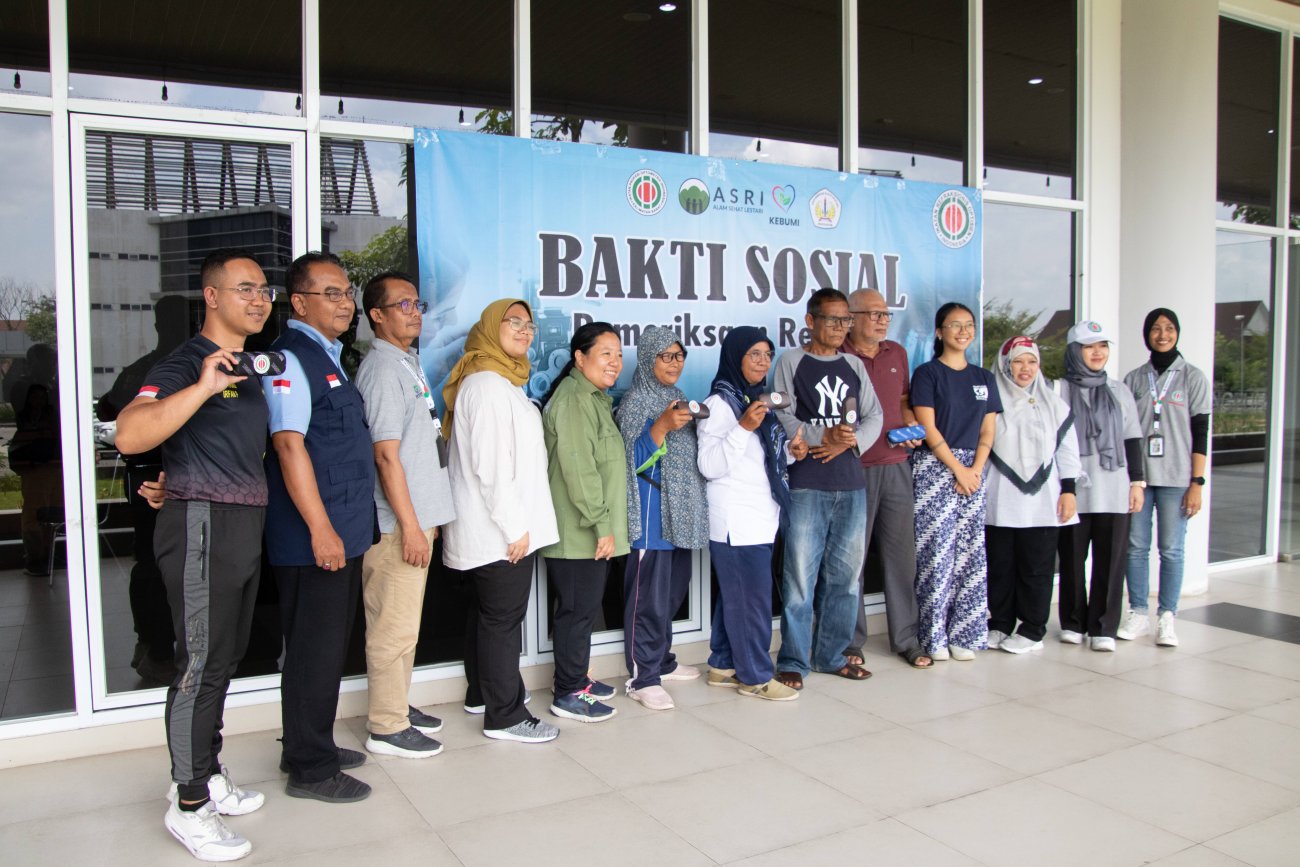FOR IMMEDIATE RELEASE | March 11, 2024
Unveiling Interconnections: KEBUMI Leads Seminar on Health, Climate, Culture in West Borneo, Indonesia
Representatives from Kesehatan Untuk Bumi (KEBUMI), Alam Sehat Lestari Foundation (ASRI), Tanjungpura University (UNTAN), Lembaga Pengkajian dan Studi Arus Informasi Regional (LPS-AIR), and Health Care Without Harm Southeast Asia (HCWH-SEA) engage in an open forum with audience from West Borneo communities
Drawing attendees from diverse communities across the West Borneo region, Kesehatan Untuk Bumi (KEBUMI) in collaboration with the Alam Sehat Lestari Foundation (ASRI) and Tanjungpura University organized an engaging seminar themed 'Health Sustainability, Climate Crisis & Culture.' Held on March 10, 2024, the event focused on topics such as resilience and sustainability in the health sector, climate change and its impact on local communities, and the relationship between health, forests, and cultural identity.
Among the distinguished guests at the event was Dr. Suherman, MKM, representing the Indonesian Health Promotion Hospital Network. In his address, he emphasized the critical role of the health sector in driving the necessary changes to safeguard both human well-being and the environment.
“The health sector holds a unique position to lead the changes we need to see in order to protect both the people and the planet."
Dr. Suherman, MKM, representative from the Indonesian Health Promotion Hospital Network, during his speech
Continuing the discourse, Laetania Belai Djandam, Climate Officer for Health Care Without Harm Southeast Asia (HCWH-SEA), reiterated the urgent need to address the climate crisis as a health crisis.
“As we delve into discussions on the interconnections between health, climate, and culture, it becomes increasingly evident that health is at the heart of these conversations."
Laetania Belai Djandam, Climate Officer for Health Care Without Harm Southeast Asia, during her presentation
The session continued with insights from Ahmad Sofian, Executive Director of Lembaga Pengkajian dan Studi Arus Informasi Regional (LPS-AIR), in his presentation titled “Landscape, Community and Climate Change”. “Pontianak’s landscape tells a story of resilience and adaptation in the face of climate change”, he remarked in reference to the city where the seminar is held, “by delving into its history, we uncover lessons that can guide us towards a healthier, more sustainable future.”
This sentiment was further explored through the presentation of Prof. Dr. Faradiba, S.Hut, M.Si, Dean of the UNTAN Faculty of Forestry. In her presentation, she draws attention to the vital role forests play as a source of health for both the planet and its people, emphasizing how the conservation of forests not only yields environmental health benefits but also safeguards the rich cultural heritage of communities residing in or near forested areas.
Finally, participants listened to an insightful presentation by two representatives of ASRI, shedding light on planetary health in action and the practical application of previous discussions. Dr. Sari Lisano, head of the ASRI clinic, emphasized the pivotal role of planetary health in bridging the realms of conservation and health, stressing that the preservation of forests and the protection of public health must no longer be approached in isolation. Complementing this perspective, Etty Rahmawati S.Pd, Education Program Manager for ASRI, highlighted ASRI's commitment to "radical listening" and community involvement in the development of planetary health solutions, ensuring that programs are sustainable and tailored to the community's needs.
Event attendees pose for a group photo after the activities
In addition to the engaging presentations from key collaborators, the seminar welcomed a diverse range of participants, including representatives from three community groups in Pontianak and the West Borneo region, health professionals, university students, and local environmental organizations. These inclusive discussions highlighted the pressing need for collaborative efforts across sectors and societal levels to address the interconnected challenges of climate and health effectively. Through insightful exchanges and shared perspectives, the seminar underscored the importance of cross-sectoral collaboration in advancing solutions that promote both human health and environmental sustainability.
Collaborative community outreach activity
As part of the partnership, a community outreach activity was held the next day at the Tanjungpura University hall. Titled 'Free Refraction Examination and Glasses Distribution,' this session was conducted in collaboration with the Indonesian Optometric Profession Association (IROPIN). Nova Joko Pamungkas, A.Md.RO., S.E.,M.M., Chairman of IROPIN, commenced the event with his welcoming remarks and an informative session on eye health. Following this, approximately 60 community members underwent refractive examinations and received free glasses.
Organizers and participants in action during the 'Free Refraction Examination and Glasses Distribution’ outreach activity
Supported by ASRI, UNTAN, and KEBUMI, this collaborative effort underscores the importance of collective action in addressing local health needs. At the conclusion of the event, 5 pairs of glasses were distributed to community representatives, with more to follow in the coming weeks. The positive feedback received from attendees highlights the impact of such initiatives on community well-being.
“Both the seminar and outreach sessions provided valuable insights, and we are thankful for the knowledge gained. It was an enriching experience that we will carry forward in our community work”, remarked one of the event participants who represented a local women-led group of environmental advocates.
The presence of health and environmental experts from each partner organization, alongside the active participation of communities, signifies a positive step forward in our ongoing efforts to understand and advocate for health, climate, and culture.
At HCWH-SEA, we are grateful for the ongoing collaborative opportunities within our KEBUMI network in Indonesia, such as the recently concluded event with ASRI. Since its inception in 2023, the KEBUMI project, which we co-initiated through our Climate and Health program, has spearheaded numerous initiatives dedicated to advancing its mission, gearing towards empowering health professionals, communities, and other stakeholders at all levels to lead the way toward a just, healthier, and equitable world.
About KEBUMI
In recognition of the urgency and the intrinsic relationship between climate change, human health, and environmental sustainability, the Indonesian Health Promoting Hospitals Network (IHPH-Net) is spearheading the convergence of health professionals into the climate discourse through KEBUMI: Kesehatan Untuk Bumi. With support from HCWH-SEA, this initiative aims to build an empowered alliance of health professionals effectively advocating and championing issues of climate justice, health equity, resilience, and healthy recovery in Indonesia.
About HCWH SEA
Health Care Without Harm Southeast Asia took root in 2003, committing to improving healthcare systems in the region. The group’s first project in the area was the Philippine Measles Eradication Campaign (PMEC) in 2004, which demonstrated the possibility of conducting a major immunization campaign without incinerating the resulting waste. The project set a global benchmark that was cited in international conferences.
Today, HCWH SEA steadfastly upholds the principles that laid its foundation two decades ago. Collaborating with a diverse network in the region, the organization continues to grow and currently focuses on three core programs: Climate and Health, Global Green and Healthy Hospitals, and Sustainability in Healthcare. The team is actively initiating projects in various countries in the region such as Indonesia, Laos, Singapore, Taiwan, Thailand, the Philippines, and Vietnam.
Authored by: Donna Mae Ocmeja, Communications Manager, HCWH SEA
